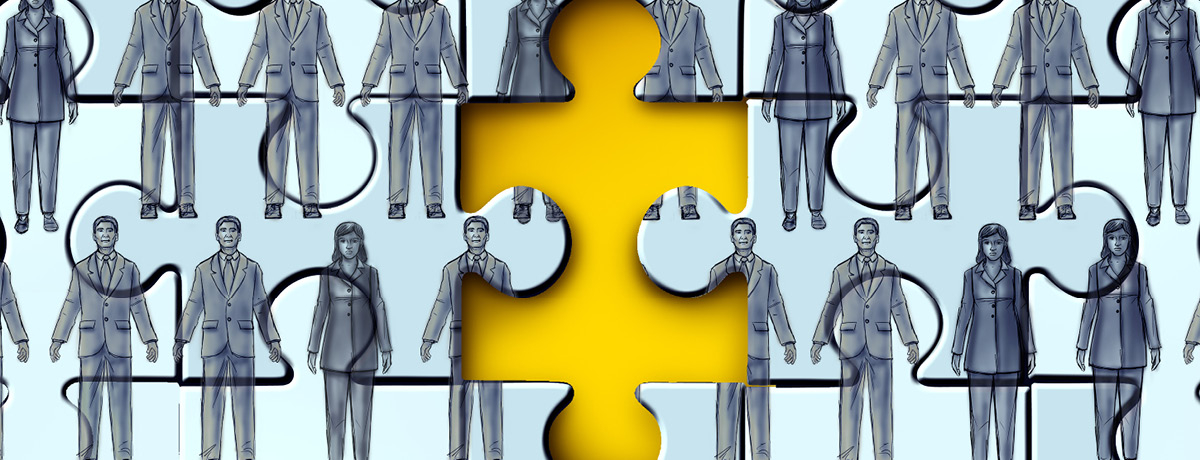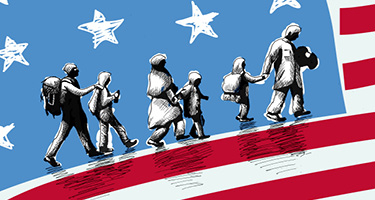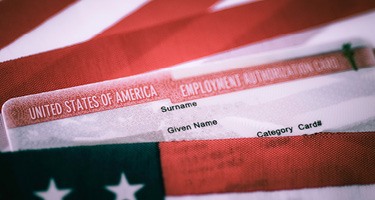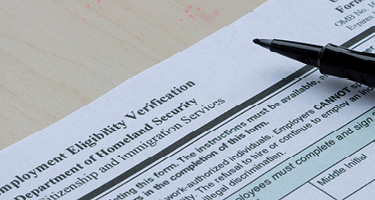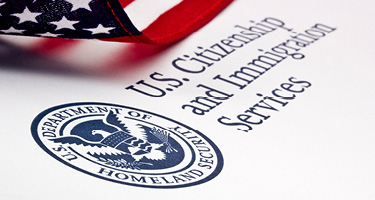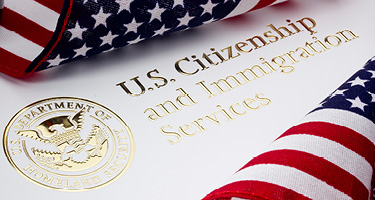The U.S.'s H-1B visa program, known as the ‘workhorse’ of nonimmigrant work visas, has been a catalyst for bringing new global talent into the U.S. market. However, the program’s annual cap has proved over the years to severely limit the number of visas awarded, especially as demand has grown.
For the U.S. to remain competitive in global markets and to encourage foreign talent to consider the U.S. a permanent home, it may be time that we seriously consider eliminating the H-1B cap.
A Short History of the H-1B Visa Program
The H-1B visa has a history going back over 50 years after its initial introduction into our U.S. immigration laws in 1970. The H-1B visa that we know today truly took shape in 1990, following the passage of the Immigration Act of 1990. With the American Competitiveness and Workforce Act of 1998 (ACWIA) and the American Competitiveness in the Twenty-First Century Act of 2000, we saw a full and robust formulation of the visa category, including all the benefits and limitations that Congress placed on it.
Most significantly, the H-1B visa category includes an annual ‘cap’ or numeric limitation for visa issuance and numerous employer requirements to assure that the U.S. workforce is not deleteriously affected by foreign competition. Since the H-1B visa category was created in 1990, Congress has limited the number of H-1B visas made available each year. The current statutory cap is 65,000 visas, with an additional 20,000 visas for foreign professionals who graduate with a master’s degree or doctorate from a U.S. institution of higher learning.
While the H-1B cap was raised to 195,000 in 2000 under the 21st Century Act, the current H-1B cap numbers utilized under the program nowhere near meet the actual H-1B visa needs. The latest H-1B cap filings for FY 2024 included close to 475,000 submissions for pre-registration in March 2023.
While attempting to protect the U.S. labor market, the annual cap of 85,000 visas has not been lifted in over 30 years. This inconsistency ultimately harms the U.S. economy by not recognizing the stiff competition that the U.S. faces from the global community, vying for talent in STEM and many other professional fields that appeal to U.S. employers who routinely utilize the H-1B visa.
H-1B Visa Program Requirements
The substance of the H-1B visa mandates that a foreign national’s entry be premised upon the fact that the individual will perform duties in a ‘specialty’ occupation, which includes professional workers and those who might perform duties as a fashion model of distinguished merit and ability, or provide special services related to the Department of Defense in cooperative research and development projects. While there are also H-1B ‘cap-exempt’ visas available to U.S. universities and related nonprofit entities, nonprofit research organizations and private government research organizations, the bulk of private U.S. businesses are hamstrung by the numeric visa limitations.
The visa requirements further mandate that the foreign national entering the United States does so for temporary employment purposes. The foreign national would not be required to demonstrate that they have an unrelinquished foreign domicile to which they would return after completion of temporary duties in the United States as mandated by many other nonimmigrant visa categories. U.S. employers are further mandated to pay ‘prevailing wages’ for the offered position as determined by the U.S. Department of Labor and are required to cover reasonable return home transportation in the event of early termination. U.S. employers must specifically attest on a labor condition application that the employment of an H-1B worker will not adversely affect the wages and working conditions of similarly employed U.S. workers, and employers must alert all U.S. workers by public notice that they intend to employ and hire an H-1B worker.
Recently proposed U.S. Citizenship and Immigration Services (USCIS) rules expected to be issued in December 2023 will affect the H-1B visa category and are expected to include a redefinition of the “employer-employee” relationship, more intense fraud detection safeguards and proposals regarding changes in requirements when material conditions in employment location might take place.
H-1B Visa Pre-Registration Process
Prior to 2020, full individual paper submissions were filed with USCIS commencing in April of each year—six months prior to the start date for H-1B employment on October 1, consistent with the start of the U.S. government fiscal year. In March 2020 (FY 2021, beginning October 1, 2020), USCIS introduced an advanced pre-registration process for employers, which would occur prior to the full petition submission requirement. The goal of this process was to reduce the burden on employers and the agency and to assure the foreign nationals who apply that they might or might not be recipients of the lottery selection, thus enabling them to remain in the United States for up to six years after completing their studies at U.S. universities. Many H-1B visa beneficiaries are students who are permitted to pursue ‘optional practical training’ after completion of studies, and ‘winning the lottery’ has become a true golden key representing the first step of entry to the United States and a route to U.S. permanent residence.
Below shows the numbers of H-1B visa recipients admitted between 2018 and 2022, and includes H-1B cap and H-1B cap-exempt foreign nationals (including H-4 dependent visa family members):
- 2018: 570,368
- 2019: 601,594
- 2020: 388,440
- 2021: 148,603
- 2022: 410,195
- 2023: 780,884 (474,421 eligible due to errors in duplicate submissions and other factors)
(*American Immigration Council Fact Sheet August 18, 2023)
The Global Race for Talent
In June 2023, Canada announced a new “Tech Talent Strategy,” which included a new program permitting open work permits for 10,000 H-1B visa holders currently located in the United States and allowing employment for up to three years, with a path to landed status—permanent residence—in Canada. Requirements did not mandate that the H-1B visa holder have a job offer in Canada, nor did the program mandate that the spouse and children of the H-1B visa holder be included in the 10,000 numerical cap. In addition, the program allowed the spouse of the visa holder the ability for unrestricted employment authorization.
The United States, conversely, will issue employment authorization to the spouse of H-1B visa holders in limited and exceptional situations when a residence case might be filed and immigrant visa backlogs prevent the foreign national from applying for residence. Much to Canada’s surprise, when the program opened in July 2023, it was inundated with applications, and in less than 48 hours, the 10,000 quota was reached. Canada originally anticipated it would take a year to fill this category. Canada later opened availability to a ‘skilled worker’ visa category that also filled up quickly. Given the severe backlogs in the quota for certain countries, including India and China, for purposes of U.S. immigration, it is no surprise that Canada’s special program to attract global talent, especially those in the U.S. with H-1B visas, pre-vetted and pre-approved for security and other purposes, exceeded the country’s wildest expectations.
Sweden and other Nordic countries, too, also have desperate need for tech talent, as do many European countries. The H-1B visa may be utilized primarily by U.S. tech companies, but the category is not limited to these occupations. Teachers, curators, engineers and many other professional occupations fall under the H-1B cap. To limit the visa numbers to 85,000 in a post-internet and new global world hamstrings the U.S. and creates a disadvantage in the desperate competition for talent worldwide.
It can also be argued that the rising costs of colleges and universities in the U.S., compared to how Canada and many European countries offer discounted costs, also discourages foreign talent from coming to the United States.
Other nonimmigrant visa categories, including the L-1 intra-company transferee, the R-1 religious worker, the O-1 alien of extraordinary ability and the E investor/trader visa, do not have numerical limitations, thus permitting U.S. companies, religious organizations and cultural centers to benefit from foreign talent without limit. Not increasing or eliminating the cap of the most popular visa category for professional or ‘specialty occupation’ workers—the H-1B visa—has limited the availability of global talent from coming to the U.S. instead of other foreign countries.
The entire H-1B program cap, then, may be hindering the U.S.’s growth and global competitiveness in this short-sightedness by discouraging businesses from bringing top professionals from abroad. It’s time the U.S. eliminate the H-1B cap altogether in order for the U.S. to better attract global talent.

Roxanne Levine, partner and chair of Tarter Krinsky & Drogin’s Business & Corporate Immigration Practice, counsels corporations and individual clients in nonimmigrant and immigrant visa issues, permanent residence processing for extraordinary foreign nationals, priority worker petitions for executives and managerial staff, PERM processing and consular practice. With clients’ business goals in mind, she guides corporations in the creation of policies and programs applicable to the hiring of foreign national personnel, I-9 compliance, recordkeeping and compliance programs developed in accordance with U.S. immigration and nationality law requirements.
